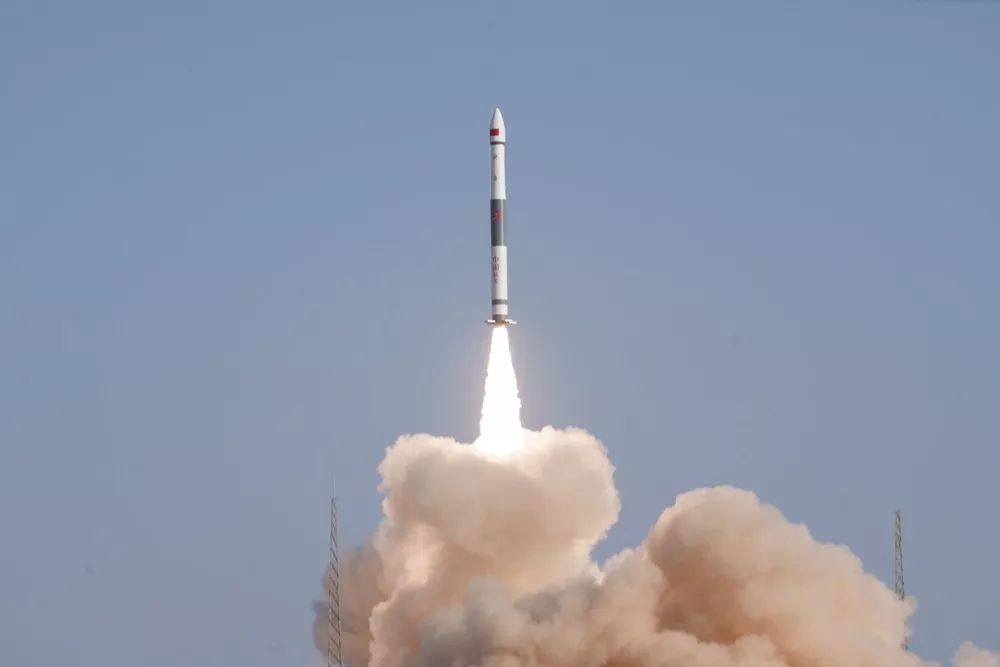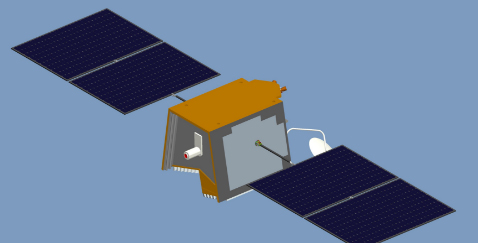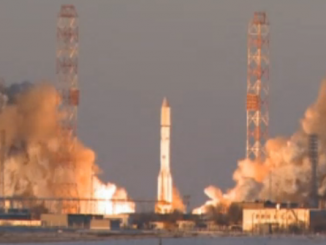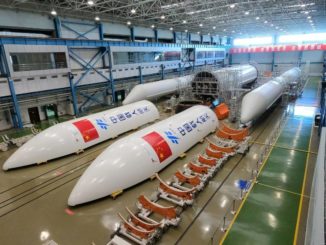
A solid-fueled Kuaizhou 1A launcher carried a commercial broadband communications satellite into orbit Thursday for GalaxySpace, a Chinese company that says it plans to launch up to 144 spacecraft for a space-based 5G network in the next few years.
The light-class Kuaizhou 1A rocket lifted off from the Jiuquan space base at 0302 GMT Thursday (10:02 p.m. EST Wednesday), according to a statement from the China Aerospace Science and Industry Corp., the government-owned contractor that owns Expace, a commercial subsidiary responsible for Kuaizhou 1A launches.
Liftoff occurred at 11:02 a.m. Beijing time.
U.S. military tracking data indicated the Kuaizhou 1A delivered its payload to an orbit ranging between 385 miles (621 kilometers) and 395 miles (637 kilometers), with an inclination of 86.4 degrees to the equator.
The 500-pound (227-kilogram) satellite launched Thursday will perform technology verification tests for GalaxySpace, which plans to deploy up to 144 satellites in low Earth orbit to provide Q-band, V-band and Ka-band broadband services in the next few years.
The satellite is named Yinhe 1, and also known as Galaxy 1, or GS-SparkSat-03.
GalaxySpace says it wants to create a global 5G network using a network of small satellites to support infrastructure development, the airline and maritime industries, emergency and disaster responders, and offer a supplement to terrestrial Internet networks for regions outside the reach of ground-based connectivity.
GalaxySpace was founded in 2016 and is backed by several Chinese venture capital and investment funds.

Thursday’s launch was the fourth third flight to orbit by a Chinese rocket in 2020, and the eighth flight of the light-class Kuaizhou 1A rocket. All of the Kuaizhou 1A launches to date have been successful.
Expace has performed six Kuaizhou 1A missions in the last five months, including back-to-back Kuaizhou 1A launches on the same day from separate launch pads at China’s Taiyuan spaceport in December.
Kuaizhou means “speedy vessel” in Chinese, a name indicative of its purpose as a satellite launcher that can be readied for liftoff in a short time period. The rocket — likely derived from Chinese ballistic missile technology — launches from a road-mobile transporter.
The Kuaizhou 1A rocket is one of several new Chinese smallsat launchers.
Technical details of the Kuaizhou 1A launcher, capable of injecting 440 pounds (200 kilograms) of payload to a 435-mile-high (700-kilometer) orbit, have not been released by Chinese authorities.
Email the author.
Follow Stephen Clark on Twitter: @StephenClark1.



